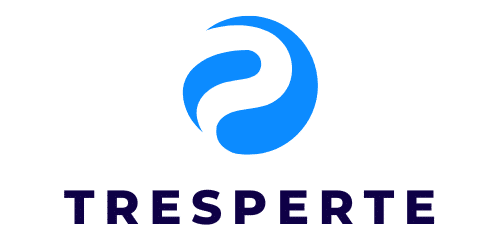What are the emerging trends in integrating smart home automation systems in residential real estate?

In the heart of today’s ever-evolving digital landscape, there’s a revolution that’s reshaping our homes and the way we live. This revolution, known as home automation or smart home technology, is an integration of various automated systems and devices aimed at enhancing homeowners’ comfort, convenience, energy efficiency, and security. The advent of smart home automation, powered by advancements in technology such as IoT (Internet of Things), has profound implications for the residential real estate market, presenting new opportunities and challenges alike.
The Growing Popularity of Smart Homes
Smart home automation is swiftly becoming an integral part of residential real estate. As homeowners become increasingly tech-savvy, there’s a growing demand for homes equipped with smart features. Let’s examine why this trend is gaining traction.
Sujet a lire : How to design flexible workspaces in real estate to cater to the evolving demands of hybrid work models?
Home automation systems provide homeowners with unparalleled convenience. With a smart home system, you can control various aspects of your home remotely, from temperature settings to lighting, and even security features like door locks and surveillance cameras. Imagine waking up to a home that’s already adjusted to your preferred temperature, or being able to check on your property while you’re away – all these are possible with smart home technology.
Energy efficiency is another compelling reason behind the popularity of smart homes. Energy-saving features such as smart thermostats and lighting systems not only help homeowners reduce their carbon footprint but also lead to significant cost savings in the long run.
A voir aussi : What role can tactile paving play in enhancing accessibility in real estate developments?
Safety and security are crucial aspects of any home, and smart home technology has made remarkable strides in this area. From fire and carbon monoxide detectors to advanced security systems with remote monitoring capabilities, smart homes are redefining residential security.
The Integration of IoT in Smart Home Automation
The Internet of Things (IoT) is at the forefront of smart home automation. By connecting various devices and systems in your home to the internet, IoT allows for seamless communication and control, ushering in a new era of smart living.
An IoT-integrated smart home enables homeowners to control various aspects of their homes from a central device—usually a smartphone, tablet, or an IoT-specific device. This level of integration enhances convenience, as homeowners can manage their homes from virtually anywhere.
Moreover, IoT technology facilitates predictive maintenance. Sensors in smart devices can monitor and predict potential issues, alerting homeowners before these turn into costly repairs. This predictive feature is invaluable in preserving the value of the property in the long term.
Smart Homes and the Future of Real Estate
As smart homes become more mainstream, they’re bound to have a significant impact on the future of the residential real estate market.
Buyers are increasingly looking for homes that offer smart features. As a result, properties equipped with home automation systems are likely to command higher prices and sell faster. This trend will likely prompt more property owners to upgrade their homes with smart features, thus further driving the demand for smart home technology.
Moreover, as energy efficiency becomes a more significant deciding factor for home buyers, properties with smart, energy-saving features will likely see an increase in demand. As such, home automation systems will play a crucial role in shaping future real estate market trends.
The Challenge of Integrating Smart Home Technology into Real Estate
While the integration of smart home automation systems in residential real estate offers many benefits, it’s not without its challenges.
One of the primary barriers to adopting smart home technology is the initial cost. While these systems can lead to significant energy savings in the long term, the upfront investment can be substantial.
Moreover, with technology advancing at such a rapid pace, there’s a risk of smart home devices becoming obsolete soon after they’re installed. Therefore, homeowners need to consider the long-term viability of the technology when making their investment.
Additionally, the integration of IoT and other smart home devices raises privacy and security concerns. As these devices are connected to the internet, they’re vulnerable to hackers. Therefore, homeowners need to ensure their smart home systems are secure to protect their privacy and property.
In summary, the integration of smart home automation systems in residential real estate is a trend that’s here to stay. As technology continues to advance, smart homes will become more accessible, efficient, and secure, making our homes more comfortable and our lives easier.
The Impact of Voice Commands in Home Automation
Voice recognition technology has become an integral part of smart home systems, offering homeowners a hands-free way to control their homes. This technology, often powered by AI assistants like Amazon’s Alexa, Google’s Assistant, or Apple’s Siri, allows homeowners to issue voice commands to operate various aspects of their homes, from adjusting the thermostat to locking the doors or even starting a load of laundry.
These AI assistants are capable of learning and adapting to the user’s patterns and habits, making them more efficient over time. For instance, they can learn your daily routine and automatically adjust the temperature or lighting in your home according to your preferences.
This level of convenience and personalization is a major selling point for potential home buyers. A home equipped with AI-assisted voice recognition not only facilitates everyday tasks but also enhances accessibility, especially for people with mobility issues.
However, there are certain challenges associated with voice recognition in smart home automation. These include issues with language and speech recognition, privacy concerns, and the risk of unauthorized access. Despite these challenges, the growing popularity of voice-enabled devices indicates that this technology will continue to be a significant trend in the smart home industry.
The Role of Smart Home Automation in Reducing Energy Consumption
As the world grapples with the realities of climate change, reducing energy consumption has become a global priority. Given that residential properties account for a significant portion of global energy use, smart home technology presents a unique opportunity to make homes more energy-efficient.
Smart homes are equipped with devices like smart thermostats and lighting systems that can adapt to the homeowner’s habits to optimize energy use. For example, a smart thermostat can learn a homeowner’s schedule and adjust the heating or cooling accordingly, reducing energy waste. Similarly, smart lights can automatically turn off when no one is in the room, further conserving energy.
These energy-efficient features do not only contribute to reducing the overall carbon footprint, but they also translate to cost savings for the homeowner. Consequently, homes with energy-saving features are increasingly attractive to potential buyers, playing a pivotal role in shaping the real estate market trends.
However, it’s essential for homeowners to remember that while the potential energy savings are significant, the upfront cost of installing these devices can be high. It’s also crucial to keep in mind that not all smart devices are created equal when it comes to energy efficiency. Therefore, it’s vital to research and invest in products that truly deliver on their promise of energy savings.
Conclusion: The Future of Smart Home Technology in Real Estate
The integration of smart home automation systems in residential real estate is undoubtedly an emerging trend that’s here to stay. As technology continues to evolve, it’s expected that more and more homes will become ‘smart’, transforming the way we live and interact with our homes.
This trend is largely driven by the myriad benefits that smart home technology offers, including enhanced convenience, enhanced security, and energy savings. Furthermore, the integration of IoT and the advent of voice recognition technology pave the way for even more advanced home automation systems in the future.
However, as with any technological advancement, it’s important to address the challenges associated with smart home technology, including the initial cost, potential obsolescence, and privacy and security concerns.
Nonetheless, as smart homes become more mainstream, they’ll continue to reshape the real estate industry, influencing property values and buyer preferences. This shift represents an exciting opportunity for homeowners, property developers, and real estate professionals alike to embrace the future of living – the smart way.
